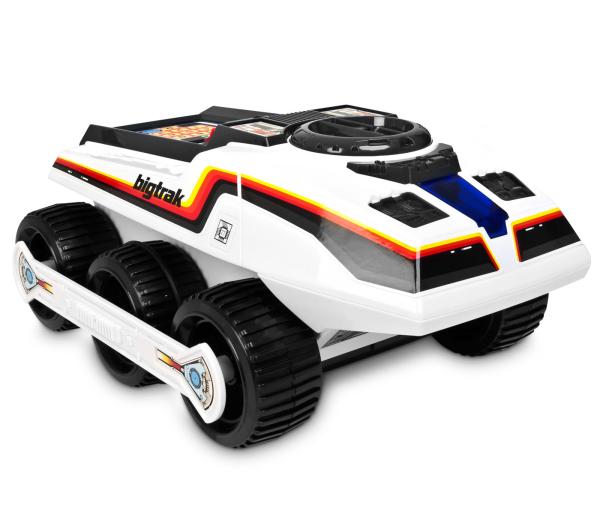Having let the dust settled, I took to SISRA to look at the departmental results. 93.1% 3LOP+, 76.9%, 70.4%, 52.4%, 71.4%, 33.3%, 0%, 0% with an overall figure of 57.6%. I'm struggling to gain much positivity from these figures, and as a result, I've been thinking about what changes we could make as a department to improve over the coming year.
The coming year scares me because so much of it is unknown. We're playing a game where we're not sure of the rules, not sure how to score, and not sure how to win. Our departmental figures are set to take a huge dive, and I've been thinking of ways that we might limit this damage.
Teaching isn't that hard. Basically, the job is know what the kids can't do, and teach them how to do it. I know that there are more aspects to it than this - meeting student needs, behaviour management, office politics and so on - but I think this is something that is largely skimmed over by a lot of staff.
Targets, exams, 'that C grade'. These things take up teachers' thoughts and set their objectives.
'But their targets are Bs and they're getting Es' is a scenario where teacher response is 'Well I'd best teach them the grade B stuff!'.
'But this, this, this and that are on the exam' is normally followed by 'So I'd best show them how to do that'.
'But they need to get that C grade'is normally followed by 'So I should teach them key topics, right?'.
I think this is the key - know what the kids can't do, and teach them how to do it.
Why teach students the grade B stuff if they don't understand the topics that prove scaffolding for these objectives?
Why show them things that are on the exam if they don't understand the topics that lead to these questions? I'm thinking about multiplying pairs of brackets when students can't expand simple brackets.
Why teach them key topics when their understanding of other topics that support those objectives isn't secure?
Two years ago we started a new scheme of work at KS3 where students work towards a number of objectives in Number, Algebra, Area and Perimeter, Angles and Statistics, and until they score 80% on their assessments they don't move on to the next aspect of each part. It's not a perfect way to go, but it has been working for us. Unfortunately, we don't work like this in Key Stage 4, and I think we maybe should do.
For every assessment my students complete, I fill in a spreadsheet for what kids could and couldn't do (number of marks achieved on each questions). It creates a print out sheet for them to take away, and it gives me a lot of information on what my students achieved their marks on.
They get this as a printout. It tells them where they dropped marks, what they need to revise and gives them the appropriate Mathswatchvle.com clip number to take away and work on that.
I get this:
This is what my Year 11s did in their final two 'proper' lessons with me - one final mock, to get a decent idea of what grade they should be getting and give them some confidence/a kick up the back side. It also told me, in no uncertain terms (as they were done in exam conditions), what my students were and weren't able to do in an exam - and whilst this isn't the be all and end all of our jobs and their education, it's how they're judged, and as a result, what I'm aiming for.
We don't send kids on study leave, but rearrange their timetable to provide 'revision lessons' or something. From this, I was able to say that my students needed, as a matter of urgency, to revisit:
For every assessment my students complete, I fill in a spreadsheet for what kids could and couldn't do (number of marks achieved on each questions). It creates a print out sheet for them to take away, and it gives me a lot of information on what my students achieved their marks on.
They get this as a printout. It tells them where they dropped marks, what they need to revise and gives them the appropriate Mathswatchvle.com clip number to take away and work on that.
I get this:
This is what my Year 11s did in their final two 'proper' lessons with me - one final mock, to get a decent idea of what grade they should be getting and give them some confidence/a kick up the back side. It also told me, in no uncertain terms (as they were done in exam conditions), what my students were and weren't able to do in an exam - and whilst this isn't the be all and end all of our jobs and their education, it's how they're judged, and as a result, what I'm aiming for.
We don't send kids on study leave, but rearrange their timetable to provide 'revision lessons' or something. From this, I was able to say that my students needed, as a matter of urgency, to revisit:
- Identifying the 'identity' sign and making use of it.
- The area of a parallelogram.
- Writing the negative root of a simple quadratic equation, rather than just the positive one.
- Algebraic fractions.
- Writing the equation of a linear graph.
- Understanding speed, distance and time.
- Probability - specifically, use of a sample space diagram when rolling two dice.
- Bearings.
- Basic angle facts.
- Drawing and interpreting a cumulative frequency diagram instead of a frequency diagram.
Some took five minutes, some took fifty, but I had a good idea of what my students couldn't do - specifically on that paper, but it's a good place to start. Except it wasn't a start, as I'd been doing the same thing since March, and as a result, the topics were changing and I was identifying different things that they couldn't do - and teaching them it. I didn't go for the back end of the paper, and I didn't think 'Oh, but what if this topic's on the paper? I should cover that...'. I covered the things that they couldn't do.
I do this for all year groups all of the time, now, and their progress is fantastic. I mean, it makes total sense.
My main aim for this post is to identify some issues that will face some teachers this year. You, me, your mate, that bloke down the corridor who rocks in at 8:45 and leaves at 3:15, are going to take over classes this year where kids are working 'below their target grades'. I am, definitely, and I would have at every school I've ever worked at, because I've always been picking up the pieces left by others it seems. My advice is...
You are only able to affect the students in the time you teach them. If you get kids who are on track, great - if the kids you get are a bit behind, then teach them what they don't know. If you don't have the data, give them a baseline assessment and work from there. Progress happens when students are taught something they didn't know and then they do - if you teach them it and they still don't know it, don't get angry and teach it again in a different way (I've been there, done this, shouted and shouted and shouted... But it achieved nothing. I've regularly said 'I'm not angry at you. I just know that you don't know this when you should, and that's frustrating. We're going to do it again, and if you still can't do it, we'll do it again, and again, and again...'). Students must make progress whilst in your care - this is your job and this is your role. If they make progress and don't meet targets, this is not the end of the world. If they don't make progress, you've got to change something, because teaching them something they don't know, so that they do is the basis of your job.
Enjoy 2016-2017! I intend to!
You are only able to affect the students in the time you teach them. If you get kids who are on track, great - if the kids you get are a bit behind, then teach them what they don't know. If you don't have the data, give them a baseline assessment and work from there. Progress happens when students are taught something they didn't know and then they do - if you teach them it and they still don't know it, don't get angry and teach it again in a different way (I've been there, done this, shouted and shouted and shouted... But it achieved nothing. I've regularly said 'I'm not angry at you. I just know that you don't know this when you should, and that's frustrating. We're going to do it again, and if you still can't do it, we'll do it again, and again, and again...'). Students must make progress whilst in your care - this is your job and this is your role. If they make progress and don't meet targets, this is not the end of the world. If they don't make progress, you've got to change something, because teaching them something they don't know, so that they do is the basis of your job.
Enjoy 2016-2017! I intend to!






